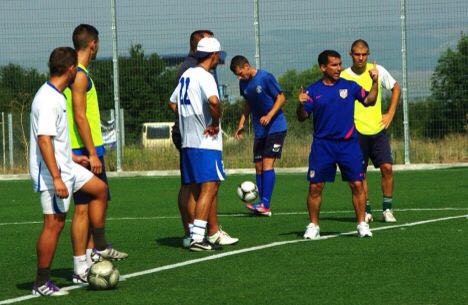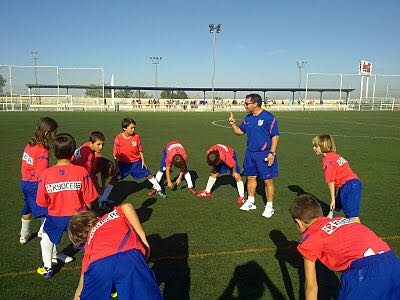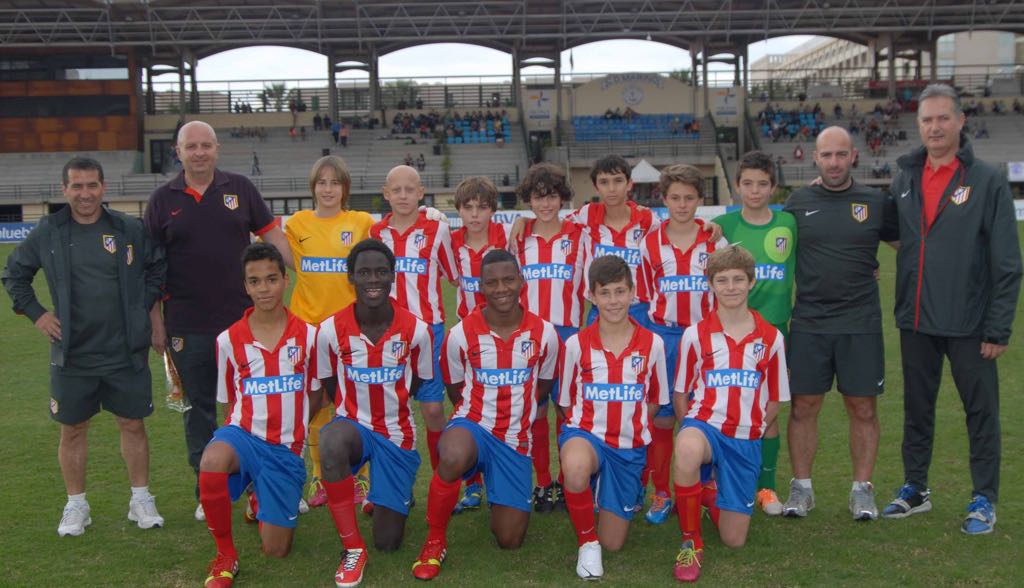How to combat insecurity and indecision
The purpose of this article is the provide guidance for action against insecurity and indecision experienced by our children, players or students. There are different degrees, but all of them cause them anxiety, avoid to think clearly in moments of stress and have a high self-esteem and self-concept in their daily lives.
The character and environment of each child affect their ability to make decisions and solve problems. Insecurity is not always linked to the sociability of the child, it can be that it occurs not in all areas (sports, educational, relational...); It may be related to its lack of ability to carry out certain activities, simply because it is not mature enough to catch the limelight or do not want to be the protagonist.
It must be said that the overcoming of this problem is a slow process and we cannot expect an immediate but gradual improvement. Therefore, no discouragement, falling into impatience, or stop working each of the aspects. To increase the chances of success, all the agents involved in the so-called educational triangle: parents, teachers and coaches, or monitors they must go in the same direction and share relevant information to be able to influence them positively and to gain more confidence.
Below I present a series of tips to keep in mind to put in order the emotional scope of the child and help you to make decisions for himself.
1 be aware of all the good things that make: it is necessary to take into account and explain what they do well. As adults, many times we focus on the negative with the intention to improve it but we just achieving the opposite effect. There is that talk individually with them or praising them in the group in front of the other players. We must become experts in communication, measure our words and forget the positive message should prevail on the negative so no they sinking by the demanding that tend to be with themselves.
2. Avoid comparisons with others: By the type of character of these players, always going to feel inferior to the rest of the companions. Compare them with other colleagues will give the lace to his fragile state of mind. It should be noted that each player is different and you have to feel comfortable with their way of being and play. In this way it will be forging his own personality and win decision making capacity.
3 encourage them to think positive: Act on your way to approach things is one of the most arduous tasks. Basically because we have no time to devote to each player a moment to talk individually with him. THE days leading up to the key moments season, should be a little more for them and give them reinforcement positive. The praise and positive expectations for part of the coach or teacher, they may be the tipping point for you go overcoming their fears.
4. Eliminate the temptation to solve problems for them: We think that this is a problem which affects most parents or teachers, but there are many situations in which we make the mistake of doing the job for them. How many times we have raised an exercise and seeing that they did not understand it, we have finished doing? In addition, when we do it, they are very clear that we are not pleased: the fuss, the vocabulary that we use, the tone of voice... In summary, children think that those who have failed are them.
5 raise divergent questions: To overcome the previous point, must try to your brain to work in search of solutions to any problems that can be found during a match. The players are used to answer questions that give immediate solutions: what? Where? If so, when? Why?... These are questions that give them security because they have an answer that you can plan and are used to answer them with parents, teachers... The leap in quality would be that they would learn to analyse things themselves and provide possible solutions to the problems that arise in matches. That means divergent questions like: what you think will happen if...? Can you think of any other way of solving the problem? What you think sobre...?. Find the answer already is not so easy and the multitude of valid answers together with the spontaneity of children make that even the coach may reconsider aspects of the game.
6 teach them the value of never give up: The perseverance and constancy is what saves many children who have this problem. From my teaching experience, students who are determined to achieve good results and do not come down, just getting along and even surpassing, long term, students who are more intelligent. The motivation to learn and practice soccer pushed them to improve as players. As coaches, we must rating the effort of the players Although not always translate into great individual performances or good results for the team. Pose exercises to challenge mode individual or collaborative support to generate this way of thinking, tasks that are not available to the first but that involve repetition and insistence on being resolved can give us a clue about which players are more persevering.

7 teach to think, analyze and solve problems by themselves: This point requires a change of mentality. They must learn that the problem does not end when everything happened, even if the outcome is satisfactory. During the process, we must help them to identify whether the problem can solve it by themselves or need our help as adults. When everything has passed, consider: how they have come to solve the problem, what it has cost them, if in case of a similar situation happen again they could do it again... is very useful for its ripener development since it helps build his way of thinking. When the tense situation has over them is easier to think and analyze things since they are not blocked by the problem. This is the ideal time to let them think about it and go acting becoming less to ensure that they develop the ability to draw conclusions independently.
8. Learn to make mistakes: Society penalizes error overreact. In tests, the final note matter to students but many of them see only failures. As an example, when we do a dictation, many see that they have five fouls, but not who have written 60 words well. When you have taken a wrong decision in any move of the party, they must learn that they cannot do anything to change that error, it's past. They can only act on the present and the future, therefore the most correct decision would be the focus on doing well in the moves that are. In the majority of cases, the players already know that she has been wrong, you do not need to remember it is from the band, especially if they are unsafe. We must encourage them and give them more confidence which have in themselves in those moments.
9. Dare to do things: Overprotection in which many children currently live makes them have a dreadful fear to confront something they have to do themselves. When they have the ball, know that all bulbs are placed in them and sometimes it takes both to decide if passing, shooting, race... that comes instead and takes away the ball. They have to think quickly and clearly and not feel fear about the outcome of the move. The worst decision is to not to take any. And that is what many in life real, when they have a problem, hope someone come and solve it, it is a way to delegate responsibilities and reflects a lack of initiative. When they do not risk it is that they are afraid or are unsure, should have enough confidence to explain you what worries them and hear of you that you will not have consequences to a bad decision is all you need in most cases.
10. Support them when they are set a target: Many times we heard as the players become a target, either individual or collective. We should applaud such initiatives because they are risking. They are anticipating an outcome and struggling to get it and by very farfetched as it may seem your target, we have to try not to sink your dreams or say that it is impossible. However, it is necessary to warn them of the difficulty of their achievement.
The lack of time that parents, teachers and coaches to simplify our efforts and focus on solving the immediate problems of our children, prepare our students to pass an exam or tactically work so that our players come out victorious of the meeting we have the next Sunday. All those short-term goals are fine, but if we want to help children in the long term we should focus on it to acquire life skills, to study and play football.
Help to achieve security in themselves and that they are not to decide is a crucial competition to their ripener development. GET IT IS AS A CAREER
BACKGROUND and although the process is laborious and takes long time seeing the results, I guarantee that investing in the education of your children, students and players long term worth and it will give you many more interests at the same time that you dotáis them the autonomy they need to correctly choose in life.

